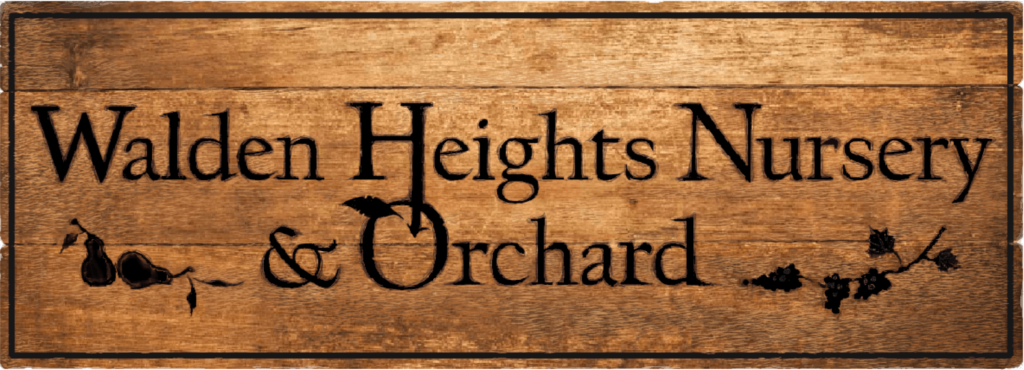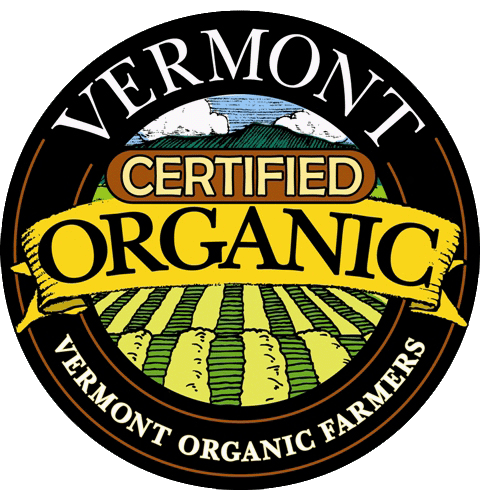Walden Heights Nursery is an organic farm, certified by VOF, and committed to sustainable practices. The farm began in 1997 in Northeastern Vermont.
What is organic anyway? Strictly speaking, that is legally, the term applies to a certified product adhering to a set of practices now controlled by the US Department of Agriculture. Formally controlled by more local entities, the rules are now determined on a national level but with a level of influence by growers that choose to be involved. Farmers are inspected every year, file records, are audited, and required to pay fees.
Regulations: In order to be a certified farm, growers are required to not only avoid certain chemicals and practices, but must also be involved in good land stewardship. Most consumers are aware of the prohibited substance aspect (the use of safer sprays), though farmers following the spirit of the standards will be engaged in sustainable practices. This includes low negative environmental impacts, avoiding erosion, crop rotation, reduced tillage, and so on. In reality this is not met by all growers, but the rules are relatively clear. We are supposed to be involved in land improvement.
Origins and best practices: Organics in the modern sense began at the very beginning of the 20th century. During these first decades F.H.King, Sir Albert Howard, Rudolph Steiner, J.I. Rodale and others were instrumental in researching and publicizing the merits of this more natural system of agriculture. At its core then was the concept of soil and plant improvement and sustainability. It used as its early modeling the practices in the simple, rural farming methods of eastern cultures like India, China, and others who continually improved their land over thousands of years. The farmers today who adhere to these core principles are probably better models of a safer, sustainable and secure food system, and certainly a better model for a healthy environment.
The current organic system: Today most organic farmers are still firmly committed to the above philosophies. Some however, particularly the large scale operations, are almost completely at odds with the core tenets of the original organic mission. Although all certified organic operations will likely be using less harmful pesticides and fertilizers, they are also more likely to use enormous amounts of fossil fuels, plastic weed control, higher spray amounts, and imported amendments. Key to sustainable practices is sustainable systems and resources.
Is organic better? That is open to interpretation. Organic agriculture by and large is better for consumers and farmers (fewer toxins), better for the environment (when strictly adhered to by growers), and when we can buy it locally. If you are interested in having your dollars support the most responsible growing practices and safest food you will have to know your supplier a little better. Do some investigation. Support what you believe in.
Who buys organic? Just rich people right? Picky people? Tree huggers? Guess again. Although some are buying organics only to avoid residues for their family, most are trying to support a responsible agricultural/horticultural system. Homeowners appreciate healthy bee population pollinating their vegetable gardens and flower beds. Some buy organic because gmo's are disallowed. Hunters and ecologists appreciate the lower impact on the wild. Many of low to moderate income would rather support these ideals along with better health instead of spending money on something less important. Unfortunately the sales in the US for organic food products is still only about 4% (in 2020). For nursery crops (like ours) it is significantly lower. So as a nation we are committed to a healthier planet, and safer food for ourselves and our children. 4 percent committed.


